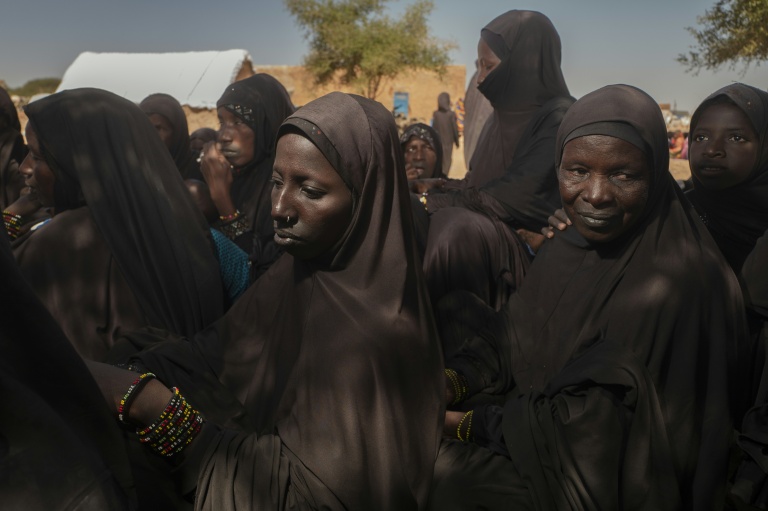World
UN Calls for Sahel Unity to Combat Escalating Violence

The United Nations has urged Sahel nations to unite against escalating violence from armed groups, as humanitarian crises deepen in the region. In a video address to the UN Security Council on October 10, 2023, UN Secretary-General Antonio Guterres emphasized the urgency for collaboration among nations facing increasing attacks by Islamist militants and other armed factions.
The Sahel region has experienced a surge in violence, particularly since 2019, with jihadist groups expanding their operations across an area now twice the size of Spain. According to data from the Armed Conflict Location and Event Data Project (ACLED), these attacks have resulted in approximately 77,000 deaths across the region. The situation is exacerbated by a series of political upheavals, including numerous coups and the withdrawal of some juntas from the regional Economic Community of West African States (ECOWAS).
Guterres acknowledged the significant political divisions among Sahel nations but stressed the necessity of building a cooperative framework among their intelligence and security services. He called for a concerted effort involving ECOWAS, the Alliance of Sahel States (AES), as well as Mauritania, Chad, and Algeria. “It is absolutely essential that we build a platform of cooperation,” he stated, aimed at facilitating coordinated actions against terrorism.
The threat posed by jihadist factions, including the Group for the Support of Islam and Muslims (JNIM) affiliated with Al-Qaeda and the Islamic State group, has spread to almost all of Mali and Burkina Faso, reaching from western Niger and Nigeria to the Senegal border.
In his address, Omar Alieu Touray, President of the ECOWAS Commission, underscored the importance of trust-building among regional governments to effectively share intelligence and counter rising security threats. He stated, “Trust is needed for countries to collaborate in information and intelligence sharing, joint border patrols, and joint operations.” Touray noted that the current climate of mistrust among stakeholders hampers collaboration, making it challenging to combat terrorism effectively.
The Sahel is not only grappling with violence but is also facing numerous environmental and economic challenges. The region is in dire need of international financial support, with an estimated $4.9 billion required for six humanitarian appeals for the Sahel and Lake Chad Basin in 2023. Guterres cautioned that less than a quarter of this amount has been raised so far, warning that “the humanitarian response plan for Mali, in particular, is only 16 percent fulfilled.”
In response to these challenges, Julius Bio, President of Sierra Leone and current chairman of ECOWAS, called for a compact involving the UN, ECOWAS, and the African Union to foster peace and resilience in the Sahel. Such collaborative efforts may prove crucial in addressing both the humanitarian and security crises plaguing the region.
As the Sahel confronts a complex web of threats, the international community’s engagement and support will be vital in facilitating cooperation among nations and addressing the root causes of instability.
-

 Science3 months ago
Science3 months agoToyoake City Proposes Daily Two-Hour Smartphone Use Limit
-

 Top Stories3 months ago
Top Stories3 months agoPedestrian Fatally Injured in Esquimalt Collision on August 14
-

 Health3 months ago
Health3 months agoB.C. Review Reveals Urgent Need for Rare-Disease Drug Reforms
-

 Technology3 months ago
Technology3 months agoDark Adventure Game “Bye Sweet Carole” Set for October Release
-

 World3 months ago
World3 months agoJimmy Lai’s Defense Challenges Charges Under National Security Law
-

 Lifestyle3 months ago
Lifestyle3 months agoVictoria’s Pop-Up Shop Shines Light on B.C.’s Wolf Cull
-

 Technology3 months ago
Technology3 months agoKonami Revives Iconic Metal Gear Solid Delta Ahead of Release
-

 Technology3 months ago
Technology3 months agoApple Expands Self-Service Repair Program to Canada
-

 Technology3 months ago
Technology3 months agoSnapmaker U1 Color 3D Printer Redefines Speed and Sustainability
-

 Technology3 months ago
Technology3 months agoAION Folding Knife: Redefining EDC Design with Premium Materials
-

 Business3 months ago
Business3 months agoGordon Murray Automotive Unveils S1 LM and Le Mans GTR at Monterey
-

 Technology3 months ago
Technology3 months agoSolve Today’s Wordle Challenge: Hints and Answer for August 19









